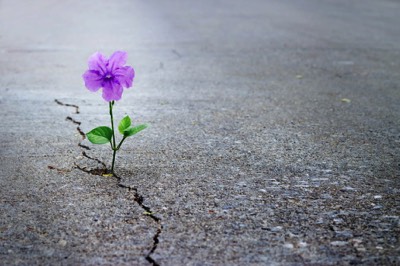The Confident Expectation Of Better Times Ahead
The ongoing COVID crisis, compounded by the situation in Afghanistan, with other natural disasters around the world piled on top, has led me to reflect on the nature of hope. Here is my working definition. Hope is living in the confident expectation of better times ahead. I’ve chosen my words carefully, particularly the phrase “confident expectation,” because I want to distinguish between hope and wishful thinking.
Wishful thinking is simply our longing for the particular outcome that seems best to us. For example, we might want to win lotto. The thing is, no matter how passionately we may want it, we have no real basis for believing it will happen. In fact, all the evidence argues that it won’t. Wishful thinking is unrealistic. It’s also very inflexible because it says that the only good outcome is the one I have chosen and nothing else will do. Wishful thinking sets us up for disappointment.
How is that different from hope? Notice that I didn’t include an end to COVID and a return to some semblance of normal life as an example of wishful thinking. That’s because we can live in the confident expectation that these things will be achieved. Sometimes, in the midst of our frustration, we forget just how far we have already come thanks to medical science, good leadership, and collaborative community effort. Never before have vaccines been developed so rapidly or rolled out on such a vast scale. We have solid reasons for believing that we will get there and so can live in the confident expectation of doing so. That is hope.
It doesn’t mean that there won’t be more hurdles to overcome along the way. There will always be things that weren’t foreseen, and people, driven by self-interest, have a nasty habit of letting us down. But hope is flexible enough to adapt and find new and creative pathways to the ultimate goal. In fact, one consequence of hope is that it motivates each of us to do what we need to do to see the outcome achieved. Hope brings out the best in us. Hope is flexible. Hope is motivational.
How do we live in hope in difficult times? First, we need a vision of better times. What does that look like? The bible tells us that God’s outcomes are always good. “It is God who works in you to will and to act in order to fulfil his good purpose” (Philippians 2:13). So let’s ask him to help us shape that vision.
And then there is a wonderful prayer in the bible. “May the God of hope fill you with all joy and peace as you trust in him, so that you may overflow with hope by the power of the Holy Spirit” (Romans 15:13). We can pray this for one another. As we embrace God’s vision of better times, as we confidently look forward to its realisation in our lives and our world, trusting that nothing can stop God bring his good purposes to reality, we find that we are filled with hope, and joy, and peace.
Neil Percival
Wishful thinking is simply our longing for the particular outcome that seems best to us. For example, we might want to win lotto. The thing is, no matter how passionately we may want it, we have no real basis for believing it will happen. In fact, all the evidence argues that it won’t. Wishful thinking is unrealistic. It’s also very inflexible because it says that the only good outcome is the one I have chosen and nothing else will do. Wishful thinking sets us up for disappointment.
How is that different from hope? Notice that I didn’t include an end to COVID and a return to some semblance of normal life as an example of wishful thinking. That’s because we can live in the confident expectation that these things will be achieved. Sometimes, in the midst of our frustration, we forget just how far we have already come thanks to medical science, good leadership, and collaborative community effort. Never before have vaccines been developed so rapidly or rolled out on such a vast scale. We have solid reasons for believing that we will get there and so can live in the confident expectation of doing so. That is hope.
It doesn’t mean that there won’t be more hurdles to overcome along the way. There will always be things that weren’t foreseen, and people, driven by self-interest, have a nasty habit of letting us down. But hope is flexible enough to adapt and find new and creative pathways to the ultimate goal. In fact, one consequence of hope is that it motivates each of us to do what we need to do to see the outcome achieved. Hope brings out the best in us. Hope is flexible. Hope is motivational.
How do we live in hope in difficult times? First, we need a vision of better times. What does that look like? The bible tells us that God’s outcomes are always good. “It is God who works in you to will and to act in order to fulfil his good purpose” (Philippians 2:13). So let’s ask him to help us shape that vision.
And then there is a wonderful prayer in the bible. “May the God of hope fill you with all joy and peace as you trust in him, so that you may overflow with hope by the power of the Holy Spirit” (Romans 15:13). We can pray this for one another. As we embrace God’s vision of better times, as we confidently look forward to its realisation in our lives and our world, trusting that nothing can stop God bring his good purposes to reality, we find that we are filled with hope, and joy, and peace.
Neil Percival
